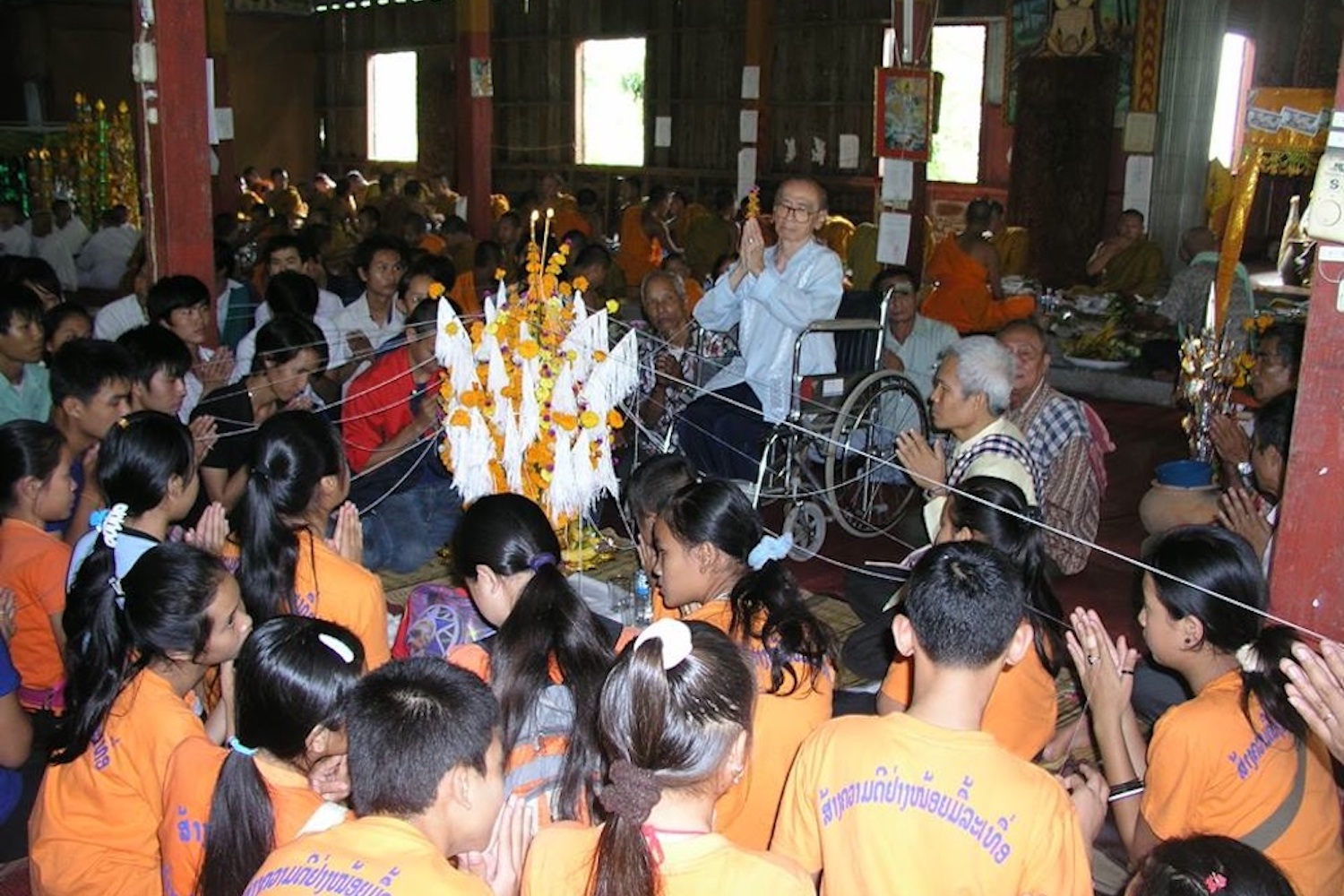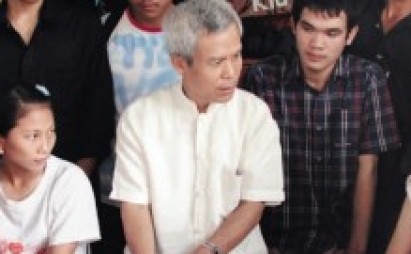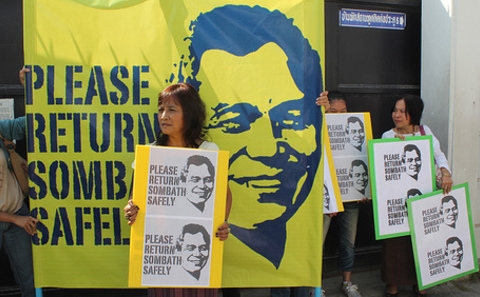AsiaNews: 09 September 2013
“Asia’s sad record of ‘enforced disappearances’ of religious leaders , activists and opponents”
从西藏班禅至老挝人权人士,亚洲有几千人被当地政府拘留,他们被视为会威胁政府当局的管治。观察家认为,报告列举的案例只是冰山一角,实际情况更加恶劣。多国政府否认有此问题,只有四个国家已确认国际公约。
 曼谷(亚洲新闻/通讯社) – 在亚洲,西藏班禅、泰国穆斯林律师会主席和老挝争取农民权益人士的共通点,是他们成为所谓的「国家拘留」受害者,他们被限制自由和关押在不明地方,因为他 们都是「敏感」的政治和宗教人物,甚至因为他们的观点以人权为先。随着时间逝去,这些「国家囚犯」可以得到公平审讯及其家人想讨回公道的机会,变得越来越 微弱。这种打压异己的方法,却在整个亚洲大陆越来越普遍。
曼谷(亚洲新闻/通讯社) – 在亚洲,西藏班禅、泰国穆斯林律师会主席和老挝争取农民权益人士的共通点,是他们成为所谓的「国家拘留」受害者,他们被限制自由和关押在不明地方,因为他 们都是「敏感」的政治和宗教人物,甚至因为他们的观点以人权为先。随着时间逝去,这些「国家囚犯」可以得到公平审讯及其家人想讨回公道的机会,变得越来越 微弱。这种打压异己的方法,却在整个亚洲大陆越来越普遍。
亚洲反对被迫失踪联会秘书长玛利·巴嘉素(Mary Aileen Bacalso)指出,这个现象很普遍。「亚洲的人口众多,是最多失踪案件的洲份。」此外,官方确证关闸的人数,却是远低于实际的数字,尤其是在政权专制国家,以及常有武装冲突的地区。
在亚洲,据争取人权人士说,有几万人处于「强迫失踪」,但只有一小部分有被记录,因为害怕当局报复。联合国工作组在2012年的报告中指出,在亚洲 国家中,斯里兰卡有5,676宗审查和未完案件、菲律宾621宗、尼泊尔458宗、东帝汶428宗、印度353宗、印尼162宗、巴基斯坦99宗、泰国 71宗、中国30宗及北韩20宗。联合国代表形容此为「冰山一角」。
在西藏,班禅于1995年当他只有6岁时被中国当局带走,一直没有消息,他是藏传佛教的第二位最重要的宗教领袖。然而,在该地区的激进组织,有数百 名僧侣及活动家在北京警方拘留,采用相同的方法来抑制国内持不同政见者,又如在新疆的穆斯林自治区。东南亚国家,如泰国、印尼、菲律宾和老挝,都是国际人 权组织所关注的国家。自1990年代在苏哈托将军的独裁统治期间的强迫失踪,以至亚洲诺贝尔奖得主老挝森巴(Sombath Somphone),他自去年12月被老挝万象当局带走。
对于人权人士或者组织争取释放「被迫失踪」者,往往遇到最大的问题是亚洲多国政府否认有这个问题,也不承认有任何强迫失踪案件。亚洲只有日本、哈萨 克斯坦、伊拉克和柬埔寨四个国家,有确认国际公约,保护所有的人不会被国家拘留。联合国呼吁设定一个有罪不罚的过渡期,政府要负起这责任,而家庭希望与他 们的亲属早日团聚。







